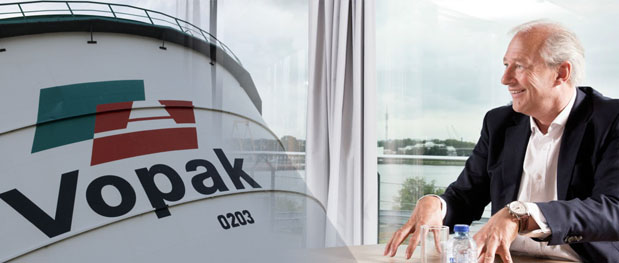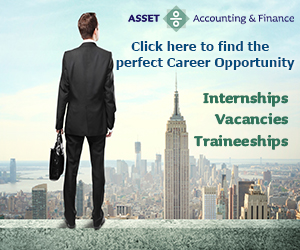Can you tell us something about yourself, your education and your career path?
My education started at the HEAO (higher professional education). This was a conscious choice, because I was more inspired by the practice than the theory. And the strength of the HEAO at that time was that 90% of the teachers were working in business. After that I studied accountancy alongside a full-time job and qualified as chartered accountant when I was 26. After that I obtained my CMA qualification in the USA and followed various MBA modules. The combination of study and work really is “The hard way”. Because of this I missed the typical student life and, for that reason, would not recommend it to everybody. My first employer was the Ministry of Finance. To be honest, not my first choice, but as a result of the crisis in the eighties, there weren’t very many jobs for starters with the multinationals. The ministry proved, however, to be a really fascinating work environment. After five years I moved to Coopers & Lybrand (later PwC), an accountancy firm with many large and international clients. The 17 years I worked there were hard work and incredibly enjoyable, the last 14 of which as partner. In 2003 I was asked to join the Executive Board of Vopak as CFO. A move into the corporate world and to a really great company that operates in a fascinating global environment. In addition, I am currently a supervisory board member of the listed company Corbion.
What has been your most enjoyable experience in your work and what your most unpleasant one?
I have had very many enjoyable work experiences. My job at the ministry was varied and a good learning experience. In the dynamic accountancy practice of PwC I worked together with many diverse and large international clients, held inspiring management positions and specialized in mergers and acquisitions. And then I was, and still am within Vopak, able to do what I am passionate about, international business on a global scale. Our Executive Board is a small and close team of three people. Together we run five divisions and the global LNG unit. That demands intensive cooperation. We are continuously asking questions like: In which direction should we take the business in the long-term? But also: What can we do better today? Around us we have enthusiastic and professional teams in the different disciplines, working well together. My most unpleasant work experiences have been at a human level; I have twice experienced that a child of a close colleague had committed suicide; that unimaginable grief has always remained with me.
In 2008 and 2009 you won the CFO of the year award for your efforts at Vopak. Can you tell us a little more about that?
This award was given to me, but actually belongs to the whole company. We had come out of an unsettled period. In 1999 Vopak was created from a merger of two successful competitors. This created a global player that was not immediately successful. The scope – task storage, shipping, chemical distribution – was large and it was not possible at that time to create a genuine entity with one corporate culture. In July 2002 it was decided to spit off the chemical distribution business and Vopak continued with a clear focus on tank storage. On 1 January 2003 I joined the Executive Board, that was after selling off the chemical distribution business. The company began to show enormous resilience and growth. It has developed into a genuine market leader in the field of tank storage and has not only been able to maintain this position but to extend it further. The foundations of this lie not only in a thorough long-term vision and strategy, but also in a lot of discipline in the areas of finance as well as safety.
How is Vopak dealing with the global trends?
Global trends are incredibly important for us. One of the most important pillars on which our company is based is the physical global transport flows of oil, chemicals and gas. These products are transported because there is a surplus in one part of the world and a shortage in another region/continent. We call that an imbalance. We are never the owners of these products but store them for our customers. Our customers are, for example, large international oil or chemical companies, governments or commodity traders. We are a crucial link in this global trade of oil, chemicals and gas. The products that are transported by sea in tankers come onto land and are temporarily stored in our tanks. Here we connect transport flows with one another. From our terminals, the products then, for example, go further on smaller ships or tanker trucks. As a link in this global oil and chemical trade, global trends are of course incredibly important. The choice of location for building a terminal is crucial. A terminal is capital-intensive and not transportable, so the location has to be good. And in order to be able to make the right choice you need to try to make a good prognosis of the future physical global trade. Aspects such as the energy mix, economic growth and geopolitics are all relevant here. As it concerns capital-intensive decisions, you also need to have a very clear financial vision. So, our global playing field is very exciting. Ranging from challenges in the Middle East, Asia, China, North America and, for example, the future role of LNG.
Can you explain the graph below?
You can clearly see the (shareholders’) value that we as a company have created since 2003. In particular, in the period between 2003-2012 we have experienced double-digit growth. This is fantastic for a company and its investors and has given the price of the Vopak share a significant boost. However, in the current global economy, double-digit growth is not possible for our type of organization. We are moving more in a sideways direction. Very robust and solid, but not with high growth figures. Clearly, investors still need to get used to this. There exists a situation of ‘hope and fear’. You can see this in the development of our share price in the period from 2013-2015. There are strong reactions to both negative as well as positive signals. This requires a different type of investor than in the period of double-digit growth. More the type of investor that, just like us, is really in it for the long term. Who values the stable phase in which the company finds itself. You see this sort of vision more often in pension funds or in investors who specialize in infrastructure. During so-called ‘roadshows’ we visit the financial markets and engage in dialog with investors to explain in more detail all the important developments and to put them into a balanced perspective.
Can you tell us something about risk management at Vopak, what the risks are and how internal control takes place?
Within Vopak we have made everybody aware of the importance of risk management. Attention for safety is top of the list. In our day-to-day operations we have to continuously deal with risks and the management thereof. We also consider missing an opportunity as a risk. We have a worldwide Enterprise Risk Management system, which has three aspects to it. The first is bottom-up; these are the most important risks that are reported by the various terminals. Secondly, our global internal audit department, global directors and the various divisions perform analyses of risks, both top-down and bottom-up. And lastly, we undertake an overall analysis, to check that we haven’t overlooked anything. We operate in a dynamic world in which risks go together with the successful running of the business. Therefore, it is important that the whole organization is continuously risk management aware. Our values, norms and corporate culture provide an essential basis for this.
What are the biggest challenges facing you as Vopak CFO?
As executive board member I feel primarily responsible for everything that goes on in the company. That goes for my colleagues in the executive board too. In addition, the financial side of the business is my specific responsibility. In the area of finance, the biggest challenge is to make the right decision for the long-term strategy, to keep the finances in order, supported by excellent financial reporting. We have been successful in doing this but you have to keep monitoring it. In assessing the investment proposals you have to continuously watch out for scenarios that are too negative, but also for scenarios that are too optimistic. The risks have to be well-considered and weighed up against the returns. Costs and outgoings need to be managed effectively. The focus on cash-flow is crucial. Furthermore, you need to stay sharp and so, by focusing and keeping your options open, make choices about which you can never achieve 100% certainty. That is the essence of doing business.
What opportunities does Vopak offer in relation to positions for starters and internships?
We have a management trainee program which receives very positive reactions. You do not apply for a function; you start working straight away in the business, and that could be at different places in the world. Where and for how long you are going to work is not fixed and depends on what is going on at that moment. In this way you have many opportunities to gain real practical experience. We combine this with worldwide management training programs.
What advice would you like to give to the Tilburg University student?
Go and do something that you are passionate about and not something that others say is good for your CV. I don’t believe in careers that are mapped out in which people say that they do something because it looks good on their CV. So, always look for something that you are passionate about and stay open-minded. Then you can excel. Enjoy new insights and try to get the most out of your role, then opportunities that you could not have imagined beforehand will present themselves.

















